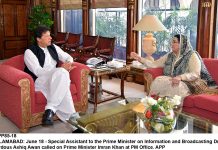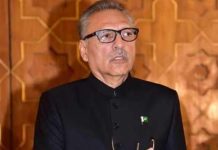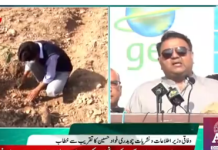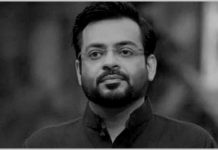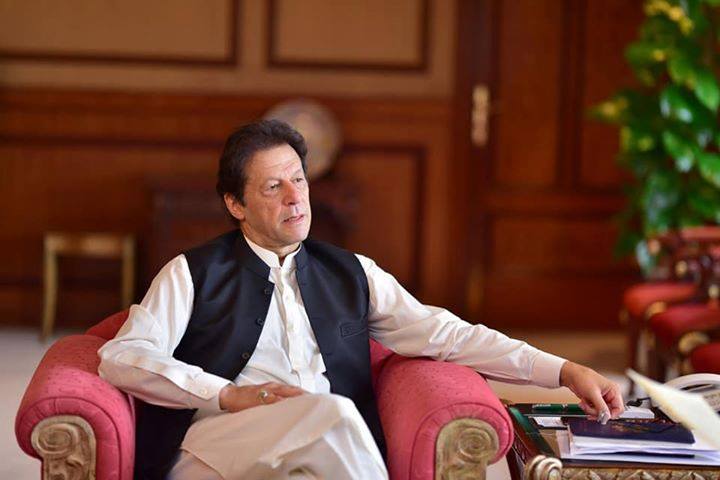 “The Hindus and the Muslims belong to two different religious philosophies, social customs and literature… they neither intermarry nor inter dine together, and indeed they belong to two different civilizations.”
“The Hindus and the Muslims belong to two different religious philosophies, social customs and literature… they neither intermarry nor inter dine together, and indeed they belong to two different civilizations.”
— Quaid-e-Azam Muhammad Ali Jinnah
“Indeed, the Muslims of India are the only Indian people who can truly be described as a nation in the modern sense of the world.”
— Allama Muhammad Iqbal
The Enduring Relevance of the
Two-Nation Theory


On 15 August, India celebrates its Independence Day. However, this date is marked as Black Day, a grim reminder of the brutalities, betrayals, and injustices against Muslims in India. This reminds us of the Two Nation Theory which was articulated by Sir Allama Muhammad Iqbal and politically realized by Quaid-e Azam Muhammad Ali Jinnah. It was not just an ideological proposition – it was a stark warning about the incompatibility of futures of Hindus and Muslims in the subcontinent. Quaid-e-Azam Muhammad Ali Jinnah said:
Sir Allama Muhammad Iqbal said:
History has vindicated this vision. From the demolition of Babri Masjid to the Gujarat pogrom, from mob lynchings to the ongoing suffocation of Indian Illegally Occupied Jammu & Kashmir (IIOJK), the trajectory of India’s state policy confirms that Muslim existence there is conditional, precarious and under siege.
Historical Roots of Hindu Hatred Towards Muslims
The communal fault lines did not emerge in 1947; they were centuries in the making. The Hindu right wing’s resentment towards Muslim rule – from the Delhi Sultanate to the Mughal Empire – has been a powerful political motivator. British colonial policies of “divide and rule” only hardened these divides, but the underlying ideological hostility predates the Raj. Hindu Leaders like Vinayak Damodar Savarkar, the ideological father of Hindutva, openly rejected any inclusive Indian identity and framed Muslims and Christians as outsiders. His book ‘Essentials of Hindutva’ remains the most influential work of Hindu nationalism. In this, he called for Hindus to come together as one homogeneous community and reclaim their ancient homeland from those he considered outsiders, primarily the Muslims. Savarkar advocated violence against Muslims as the principal means to bind antagonistic lower and upper castes, writing:

“Nothing makes Self-conscious of itself so much as a conflict with non-self. Nothing can weld peoples into a
nation and nations into a state as the pressure of a common foe. Hatred separates as well as unites.”
Savarkar justified violence, including rape, as a political tool against Muslims, calling it revenge for alleged historical atrocities committed by Muslims. This brutal rhetoric provided ideological sustenance for communal violence against Muslims in later times. He viewed Muslims as the “real enemies,” not the British, because Islamic ideology posed a threat to Hindu nationalism. Savarkar considered Muslims in government services, police, and military as “potential traitors” and advocated representation in these sectors.
Rashtriya Swayamsevak Sangh (RSS), founded in 1925, dreamt of Akhand Bharat – a Hindu-only empire stretching across South Asia. Its cadres romanticize the idea of “undoing” Muslim rule, not through reconciliation, but through erasure. As per the article of Anuradha Bhasin titled, ‘Modi has forcibly integrated Kashmir with India but erased Kashmiris’,

“The RSS’s ideology promotes open hatred for minorities, cleaving to an idea of nationalism that is not based on constitutional values but is defined by the ostensible purity of the Hindu race.”
This mindset is not confined to dusty RSS motto; it drives modern Indian policy under Narendra Modi.

RSS, Hindutva & the Machinery of Hate
The RSS and its political wing, the Bharatiya Janata Party (BJP), have cultivated a climate where Muslims are portrayed as demographic threats, Sikhs as separatists and Dalits as social inferiors.

Hindutva’s supremacist doctrine seeks to recast India’s identity into a rigidly Hindu mould through a combination of cultural, legal, and violent means. It pushes for cultural homogenization by erasing Islamic history from school curricula and replacing it with exaggerated or mythical Hindu narratives, thereby denying generations of students a truthful account of the subcontinent’s past. It enforces religious persecution through laws like the Citizenship Amendment Act (CAA), which openly discriminate against Muslims by creating a faith-based hierarchy of citizenship.

On the streets, this ideology fuels mob violence, most infamously through so-called Gau-raksha (cow protection) vigilantism, which has claimed dozens of Muslim lives under the pretext of defending Hindu religious sentiments. Even Sikhs – whose contribution to India’s independence is undeniable – face repression when they challenge New Delhi’s policies, as seen in the farmer protests and crackdowns in Punjab. Low-caste Hindus remain trapped in the centuries-old caste hierarchy, despite constitutional protections.

From “Butcher of Gujarat”
to National Icon
Narendra Modi’s political legacy began in blood. As Chief Minister of Gujarat in 2002, he presided over one of the worst communal massacres in independent India’s history. Over 1000 people, mostly Muslims, were killed; women were raped, children burned alive. International media and human rights bodies called it a pogrom, not a riot.

The US State Department once denied Modi a visa over his role in the carnage, labelling him complicit in “severe violations of religious freedom.” Yet today, Modi is celebrated by Hindu nationalists for his “decisiveness” and became a national icon.

Under Narendra Modi’s premiership, India has witnessed a systematic escalation of majoritarian aggression against its Muslim population. The demolition of historic mosques has become a symbol of this campaign – with the destruction of Babri Masjid in 1992 marking only the beginning, as sites like the Gyanvapi Mosque now face similar threats. In Kashmir, the abrogation of Articles 370 and 35A in August 2019 stripped the region of its autonomy, triggering a sweeping lockdown marked by mass arrests, communication blackouts, and an intensified military presence. Beyond territorial repression, the state has actively pursued policies targeting Muslims, including laws that restrict halal meat sales, ban the hijab in educational institutions, and the rhetoric of “love jihad.”

Together, these actions reflect an orchestrated campaign to marginalize Muslims socially, economically, and politically while reinforcing the Hindutva vision of a homogenous Hindu state.

IIOJK: The Open-Air Prison
Since 1947, Kashmiris have been resisting Indian occupation. The abrogation of Article 370 in 2019 was a legal coup, ending the state’s special status and opening the floodgates for demographic engineering.
Indian atrocities in IIOJK have become systematic and deeply entrenched, reflecting a deliberate policy of suppression. Mass detentions under draconian laws like the Public Safety Act allow authorities to imprison individuals without trial for extended periods, silencing political activists, journalists, and ordinary citizens alike. Prolonged communication blackouts are imposed to choke dissent and isolate the region from the outside world, cutting off Kashmiris from both information and support.
Security forces routinely deploy pellet guns, a so-called “non-lethal” weapon that has blinded and maimed hundreds of young people, leaving lasting scars on an entire generation.
These acts are compounded by systematic torture, extensively documented by international human rights organizations, painting a grim picture of a population subjected to relentless state violence under one of the world’s most heavily militarized occupations. Human Rights Watch, in its July 2024 report, underscores the continuity of repression:

“The Indian security forces continue to carry out repressive policies including arbitrary detention, extrajudicial killings and other serious abuses.”
Indian media acts as an amplifier for state propaganda, branding every Kashmiri protest as “Pakistani sponsored terrorism” while silencing stories of rape, custodial killings, and mass graves.

Indo-Israel Playbook
Modi’s India mirrors Netanyahu’s Israel in both ideology and practice, with striking parallels in their methods of domination. In Kashmir and Palestine alike, occupation is entrenched as state policy, where land grabs and settlement projects are designed to alter demographics and cement control over disputed territories. Media manipulation plays a central role, with nationalist rhetoric reframing the occupiers as victims and branding indigenous resistance as terrorism. Both regimes rely heavily on militarization, maintaining massive troop deployments to enforce perpetual siege, suppress dissent, and ensure that resistance is met with overwhelming force. Together, these strategies form a shared blueprint of modern-day settler colonialism cloaked in the language of security.

Both leaders thrive on fear politics, using “terrorism” as a catch-all excuse to suppress entire populations.

Separatists, Sikhs & India’s Hypocrisy
India’s treatment of its Sikh population is another testament to its double standards. New Delhi’s reflexive linking of every Sikh activist abroad to “Pakistan backed Khalistan extremism” is strategic propaganda. From Interpol notices to diaspora intimidation, India weaponizes counterterrorism democratic dissent.
The recent case of Harvinder Rinda and Lakhbir Landa is a textbook example – allegations are floated without credible evidence, while Indian support for anti Pakistan militants in Balochistan remains an open secret. As the FBI’s ‘Summer Heat Initiative’ in the US showed, India shamelessly hijacks unrelated law enforcement cases to advance its anti-Pakistan narrative.
India’s Covert War Against Pakistan
RAW’s role in funding insurgent outfits like the Balochistan Liberation Army (BLA) is well documented. From arms supplies to information warfare, India has invested heavily in destabilizing Pakistan’s internal security. The aim is twofold: Divert attention from Kashmir and Weaken Pakistan economically and politically. Yet, despite these provocations, Pakistan’s security forces and civilians have shown unmatched resilience.
The Spirit of Resistance: Hum Pakistani hain, Pakistan Humara hai!
Syed Ali Geelani once said that We are Pakistanis and Pakistan is ours. In Kashmiris, the will to resist remains unbroken keeping this saying in mind. Generations have grown up under occupation, yet their commitment to freedom and love for Pakistan is unwavering. Pakistan’s own history is written in the blood of martyrs – from soldiers defending borders to citizens targeted by Indian-backed terrorism.

On this Black Day, we honor the martyrs of IIOJK who faced bullets for demanding freedom along with the Pakistan’s security forces and Innocent civilians who paid with their lives in markets, mosques and schools due to Indian-sponsored attacks.
The Call to the World
India’s human rights record is not a domestic issue – it is a global crisis. Just as apartheid South Africa was shunned, so must Hindutva India be held accountable. The world cannot turn a blind eye to State-sponsored pogroms, Persecution of minorities, Cross-border subversion and Occupation of Kashmir in defiance of UN resolutions. As late Syed Ali Geelani wrote,
“Because of non-resolution of this issue (Kashmir), the region lives in a state of fear, uncertainty, and mistrust. Wars have been fought, thousands of lives lost, and blood spilt, but to no avail.”
15 August is not just a date; it is a reminder of what happens when supremacist ideology captures state power. The call to the world is the same what late Syed Ali Geelani wrote to the OIC,
“What has been preventing it to perform the role history has cast for it. Why it has not so far succeeded in persuading India for living by its promise and conceding the right to self determination to the people of Jammu and Kashmir”
The Two-Nation Theory was not a relic of the past; it was a prophecy. Today’s India, intoxicated by Hindutva, proves the wisdom of Quaid-e-Azam’s insistence on a separate homeland for Muslims. As the Indian state marches toward an Akhand Bharat agenda, trampling over human rights and international norms, it is the duty of the global community to stand with the oppressed – from Kashmir to Punjab – and to resist this global hegemon.
Until justice prevails, 15 August will remain a Black Day in the hearts of millions!



